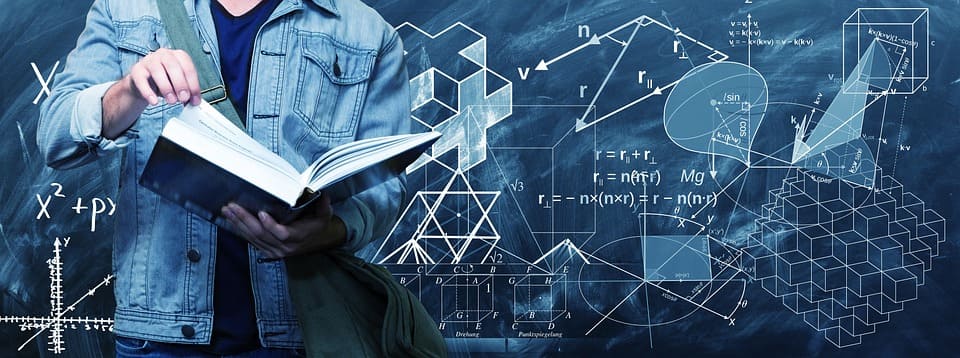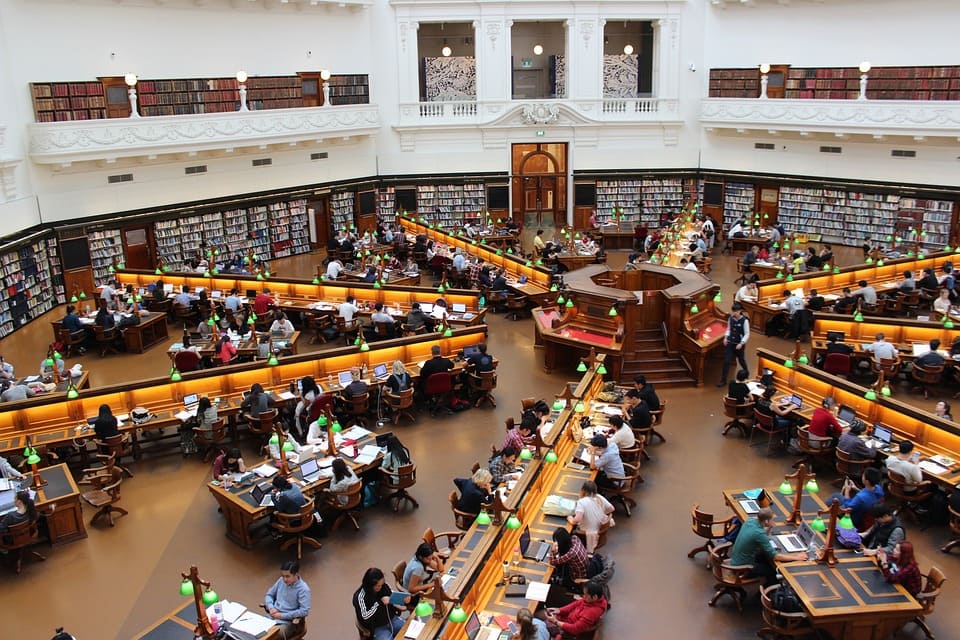
B.Lib Course Fees 2024-25
Hello, Friends, My Name is Pooja Sharma Content Curator on this Article I Cover all of B.Lib Admission 2024-25 (Don't let simple mistakes derail your B.Lib admission software. Learn approximately the maximum not unusual errors candidates make and the way to keep away from them, from missing deadlines to failing to spotlight your strengths.) Please examine all articles and provide valuable suggestions inside the Comment Box.
B.Lib Admission Process and Selection Criteria
B.Lib, or Bachelor of Library and Information Science, is an undergraduate application that gives students with the knowledge and capabilities required to come to be professional librarians. The admission system for B.Lib programs varies from institution to institution, but maximum universities follow a comparable technique. In this article, we can speak the overall admission procedure and choice criteria for B.Lib packages.
Admission Process for B.Lib Programs:
The admission method for B.Lib programs usually includes the following steps:
Application Form: The first step inside the admission system is to fill out an software shape. Candidates can download the form from the university's website or attain it in man or woman from the admission workplace. The application shape will require the candidate's personal statistics, instructional statistics, and other relevant statistics.
Entrance Examination: Most universities conduct an entrance examination to choose candidates for the B.Lib software. The examination will check the candidate's knowledge in regions inclusive of wellknown knowledge, English language skillability, reasoning ability, and basic understanding of library and statistics technological know-how.
Merit List: After the entrance exam, the college will prepare a benefit list based totally at the candidate's performance within the examination. Candidates who have scored higher marks in the front examination may be given higher priority in the merit listing.
Counseling: Candidates who've cleared the entrance exam and were blanketed in the merit listing might be invited for counseling. During the counseling session, candidates will be asked to select their preferred route and organization based totally on their rank inside the advantage listing.
Selection Criteria for B.Lib Programs:
The selection standards for B.Lib applications might also vary relying on the university or group. However, the following elements are normally taken into consideration while deciding on applicants for the B.Lib program:
Educational Qualification: Candidates need to have completed their 10+2 training from a recognized board or organization. A minimal of 50% marks is needed within the qualifying exam.
Entrance Examination: The entrance exam is an essential aspect within the choice technique. Candidates who rating higher marks in the examination are given priority within the advantage list.
Personal Interview: Some universities may additionally behavior a personal interview to assess the candidate's communication capabilities, know-how of library and information technological know-how, and other relevant factors.
Work Experience: Some universities may additionally give preference to applicants who've work revel in inside the library or associated field.
Reservation Policy: Universities comply with a reservation coverage for admission to the B.Lib program. A positive percentage of seats are reserved for candidates belonging to scheduled castes, scheduled tribes, different backward instructions, and bodily handicapped applicants.
B.Lib Understanding the Syllabus and Exam Pattern
B.Lib or Bachelor of Library and Information Science is an undergraduate direction that offers college students with the understanding and abilties required to emerge as expert librarians. The B.Lib syllabus and exam sample are designed to equip college students with the important competencies within the regions of library control, records technology, studies technique, and statistics science. In this article, we will talk the B.Lib syllabus and examination sample in element.
B.Lib Syllabus:
The B.Lib syllabus is designed to offer students with a complete knowledge of library technology and statistics technological know-how. The syllabus is divided into six semesters, and the subjects blanketed in every semester are as follows:
Semester 1:
Introduction to Library Science
Library Classification and Cataloguing
Reference and Information Sources
Library Management and Administration
Information Technology
Semester 2:
Information Retrieval and Online Searching
Library Automation
Preservation and Conservation of Library Materials
Library Networking and Consortia
Research Methodology
Semester 3:
Collection Development and Management
Library Services for Special Groups
Library Building and Planning
Library Legislation and Copyright
Academic Libraries
Semester 4:
Public Libraries
School Libraries
Digital Libraries
Management of Electronic Resources
Marketing of Library Services
Semester 5:
Research and Evaluation of Library Services
Information Literacy and User Education
Intellectual Property Rights and Open Access
Bibliometrics and Scientometrics
Information Ethics
Semester 6:
Dissertation/Project Work
Fieldwork and Internship
Viva Voce
B.Lib Exam Pattern:
The B.Lib exam sample consists of each theoretical and sensible checks. The theoretical examination is performed at the quit of each semester, and the realistic exam is conducted during the very last semester. The examination pattern is as follows:
Theoretical Exam: The theoretical exam includes 70 marks, and the length of the exam is three hours. The query paper consists of both objective and subjective kind questions.
Practical Exam: The realistic examination is performed at some stage in the very last semester and consists of 30 marks. The realistic exam includes viva-voce, fieldwork, and undertaking work.
Internal Assessment: Internal evaluation is primarily based on the pupil's attendance, assignments, presentations, and class participation. Internal evaluation contains 30% of the entire marks.
B.Lib Required Document for Admission?
B.Lib or Bachelor of Library and Information Science is an undergraduate course that gives students with the know-how and competencies required to come to be expert librarians. The admission procedure for B.Lib involves sure files that want to be submitted by means of the candidate. In this text, we will talk the required documents for B.Lib admission.
Mark Sheet and Certificate of 10th and 12th Class: Candidates need to submit the mark sheet and certificate of sophistication tenth and 12th as evidence of their instructional qualification. The marks received in these assessments decide the eligibility of the candidate for the B.Lib path.
Graduation Mark Sheet and Certificate (if relevant): Candidates who have finished their commencement want to post their commencement mark sheet and certificate as proof in their educational qualification.
Character Certificate: Candidates want to publish a person certificate from the organization wherein they completed their preceding schooling. The certificates need to certify that the candidate has no crook record and has true moral character.
Caste Certificate (if applicable): Candidates who belong to a reserved category need to publish their caste certificate as evidence in their class.
Domicile Certificate (if relevant): Candidates who belong to a specific country or area need to publish their homestead certificate as evidence of their house.
Migration Certificate: Candidates who have completed their previous schooling from a college or board aside from the only wherein they're looking for admission to B.Lib need to publish a migration certificate.
Passport Size Photographs: Candidates want to post passport length pix as per the specs referred to by using the group wherein they're looking for admission.
Admit Card and Score Card of the Entrance Exam (if relevant): Candidates who've appeared for an entrance exam want to post the admit card and scorecard of the entrance exam as evidence of their score.
Medical Certificate: Candidates want to post a clinical certificate to certify that they may be physically match to pursue the B.Lib course.
B.Lib Specializations and Course Structure
B.Lib or Bachelor of Library and Information Science is an undergraduate direction that provides college students with the understanding and skills required to end up professional librarians. The course shape of B.Lib is designed to offer students with a complete know-how of library technology and statistics technology. B.Lib gives specializations in numerous fields, permitting college students to specialize in a selected location of library science. In this newsletter, we can discuss the specializations and route shape of B.Lib in detail.
B.Lib Specializations:
Digital Library: This specialization specializes in the control and agency of digital assets, which include e-books, e-journals, databases, and other digital resources.
Public Library: This specialization makes a speciality of the control and business enterprise of public libraries, which includes making plans and organizing library services for the general public.
Academic Library: This specialization specializes in the control and business enterprise of educational libraries, consisting of making plans and organizing library services for educational institutions.
School Library: This specialization focuses on the control and agency of college libraries, including making plans and organizing library services for faculties and academic establishments.
Special Library: This specialization focuses on the control and agency of specialized libraries, which includes making plans and organizing library offerings for specialized establishments like law corporations, hospitals, and authorities agencies.
B.Lib Course Structure:
The B.Lib course structure is designed to offer students with a comprehensive expertise of library science and facts science. The direction is divided into six semesters, and the topics blanketed in every semester are as follows:
Semester 1:
Introduction to Library Science
Library Classification and Cataloguing
Reference and Information Sources
Library Management and Administration
Information Technology
Semester 2:
Information Retrieval and Online Searching
Library Automation
Preservation and Conservation of Library Materials
Library Networking and Consortia
Research Methodology
Semester 3:
Collection Development and Management
Library Services for Special Groups
Library Building and Planning
Library Legislation and Copyright
Academic Libraries
Semester four:
Public Libraries
School Libraries
Digital Libraries
Management of Electronic Resources
Marketing of Library Services
Semester 5:
Research and Evaluation of Library Services
Information Literacy and User Education
Intellectual Property Rights and Open Access
Bibliometrics and Scientometrics
Information Ethics
Semester 6:
Dissertation/Project Work
Fieldwork and Internship
Viva Voce
Job Opportunities and Salary after Earning a B.Lib
B.Lib or Bachelor of Library and Information Science is an undergraduate route that offers students with the understanding and competencies required to end up expert librarians. After incomes a B.Lib diploma, there are several activity opportunities available in both the public and private sectors. In this newsletter, we will speak the task opportunities and revenue after incomes a B.Lib degree.
Job Opportunities:
Librarian: A librarian is accountable for handling and organizing library sources, along with books, journals, and different materials. They also provide reference and studies assistance to library buyers.
Information Analyst: An facts analyst is answerable for analyzing and evaluating information, inclusive of records, reviews, and other substances, to become aware of tendencies and patterns.
Library Assistant: A library assistant is chargeable for presenting administrative help to librarians, consisting of handling library materials, processing books, and helping library buyers.
Documentation Officer: A documentation officer is liable for dealing with and organizing files and different substances, inclusive of preserving databases and growing reviews.
Archivist: An archivist is answerable for managing and retaining ancient files and substances, such as books, manuscripts, and other materials.
Museum Curator: A museum curator is accountable for managing and preserving museum collections, which include choosing and acquiring gadgets for display, creating famous, and supplying education programs for site visitors.
Knowledge Manager: A understanding manager is answerable for dealing with and organizing expertise and records assets, which includes developing expertise control systems and presenting training and assist to personnel.
Salary:
The salary after incomes a B.Lib diploma varies relying on the activity role and the business enterprise. Here are some of the common earnings stages for specific activity roles after finishing a B.Lib degree:
Librarian: The average profits for a librarian stages from INR 2.five-five lakh in step with annum in India.
Information Analyst: The common profits for an data analyst stages from INR 3-6 lakh in keeping with annum in India.
Library Assistant: The common earnings for a library assistant degrees from INR 1.8-3 lakh in line with annum in India.
Documentation Officer: The common earnings for a documentation officer degrees from INR 2.5-four lakh in keeping with annum in India.
Archivist: The average profits for an archivist degrees from INR 2.5-4 lakh in line with annum in India.
Museum Curator: The average salary for a museum curator tiers from INR 3-6 lakh in keeping with annum in India.
Knowledge Manager: The common income for a know-how manager ranges from INR 3-6 lakh per annum in India.
B.Lib Admission FAQs and solution
Q: What is B.Lib route?
A: B.Lib or Bachelor of Library and Information Science is an undergraduate course that offers college students with the know-how and abilities required to turn out to be professional librarians.
Q: What is the eligibility criteria for B.Lib admission?
A: The eligibility standards for B.Lib admission varies depending at the college or university. However, generally, candidates have to have completed a Bachelor's diploma in any discipline from a identified university with a minimal aggregate of fifty%.
Q: What is the admission method for B.Lib?
A: The admission procedure for B.Lib varies relying at the college or university. Generally, candidates are decided on based on their performance inside the front examination accompanied through a counseling method.
Q: Is there any age restriction for B.Lib admission?
A: There is not any age restriction for B.Lib admission. Candidates of any age can apply for the route as long as they meet the eligibility standards.
Q: What is the period of the B.Lib path?
A: The period of the B.Lib route is normally 1 yr to two years.
Q: What is the syllabus of the B.Lib path?
A: The syllabus of the B.Lib path consists of subjects such as Library Management, Information Science, Information Sources, Reference and Information Services, Research Methodology, Classification, Cataloguing, and so on.
Q: Are there any specializations to be had in the B.Lib path?
A: Yes, a few universities provide specializations within the B.Lib course along with Digital Library Management, Public Library Management, Academic Library Management, and many others.
Q: What are the task possibilities after finishing the B.Lib path?
A: After completing the B.Lib path, applicants can paintings as librarians, records analysts, library assistants, documentation officials, archivists, museum curators, information managers, and so on.
Q: What is the common salary after completing the B.Lib direction?
A: The income after completing the B.Lib route varies depending at the activity function and the organization. However, the average earnings levels from INR 2.5-6 lakh consistent with annum in India.
Q: Is there any scope for similarly training after finishing the B.Lib route?
A: Yes, candidates can pursue higher education such as M.Lib (Master of Library and Information Science), Ph.D. in Library Science, etc. to decorate their expertise and career prospects.
Q: What competencies are required to come to be a a hit librarian?
A: To emerge as a successful librarian, applicants ought to have top verbal exchange competencies, organizational competencies, technical skills, understanding of diverse statistics resources and their uses, and a ardour for books and gaining knowledge of.
Q: Can candidates follow for B.Lib admission thru distance training?
A: Yes, some universities provide B.Lib path through distance training mode. However, candidates need to check the eligibility standards and admission manner before making use of.
Q: What is the distinction among B.Lib and B.L.I.Sc?
A: B.Lib and B.L.I.Sc are each undergraduate guides related to library and records technological know-how. However, B.Lib is a 1-year direction, while B.L.I.Sc is a 2-yr course. B.L.I.Sc also covers more advanced topics inclusive of facts generation, studies method, and control of data centers.
Q: Is it important to have a heritage in library science to use for B.Lib course?
A: No, it isn't always important to have a history in library technology to use for the B.Lib course. Candidates from any academic history can practice for the direction so long as they meet the eligibility criteria.
Q: What are the top colleges for B.Lib direction in India?
A: Some of the pinnacle colleges for B.Lib path in India are:
University of Delhi, Delhi
Jamia Millia Islamia, New Delhi
Banaras Hindu University, Varanasi
University of Calcutta, Kolkata
University of Mumbai, Mumbai
University of Madras, Chennai
Aligarh Muslim University, Aligarh
Guru Gobind Singh Indraprastha University, Delhi
SNDT Women's University, Mumbai
University of Hyderabad, Hyderabad
Q: What is the entrance examination for B.Lib path?
A: The front exam for B.Lib route varies relying at the university or university. Some universities conduct their own front assessments, while others be given rankings from country wide-degree front exams along with the UGC-NET or the IGNOU OPENMAT examination.
Q: What is the fee shape for B.Lib direction?
A: The price shape for B.Lib route varies relying on the college or university. Generally, the costs range from INR 10,000 to INR 50,000 according to year.
Q: Can applicants practice for B.Lib path through on-line mode?
A: Yes, many universities provide online programs for B.Lib path. Candidates can go to the reliable internet site of the university or college and fill the software shape online.
Q: What are the career alternatives after completing M.Lib direction?
A: After finishing M.Lib path, applicants can work as senior librarians, records managers, research analysts, database directors, educational counselors, and know-how managers. They can also pursue higher schooling such as Ph.D. in Library Science or Information Science.
Q: What are the capabilities required to come to be an facts analyst?
A: To grow to be an facts analyst, applicants need to have sturdy analytical abilties, crucial questioning, studies skills, and understanding of diverse facts resources and their makes use of. They must additionally have right communique capabilities and the capacity to paintings with specific sorts of humans.
Q: What is the distinction between librarian and data analyst?
A: A librarian is liable for managing and organizing the sources of a library, whilst an statistics analyst is chargeable for studying and organizing facts for a particular corporation or industry. The roles and duties of a librarian and statistics analyst may overlap in some cases, but their awareness is one of a kind.




